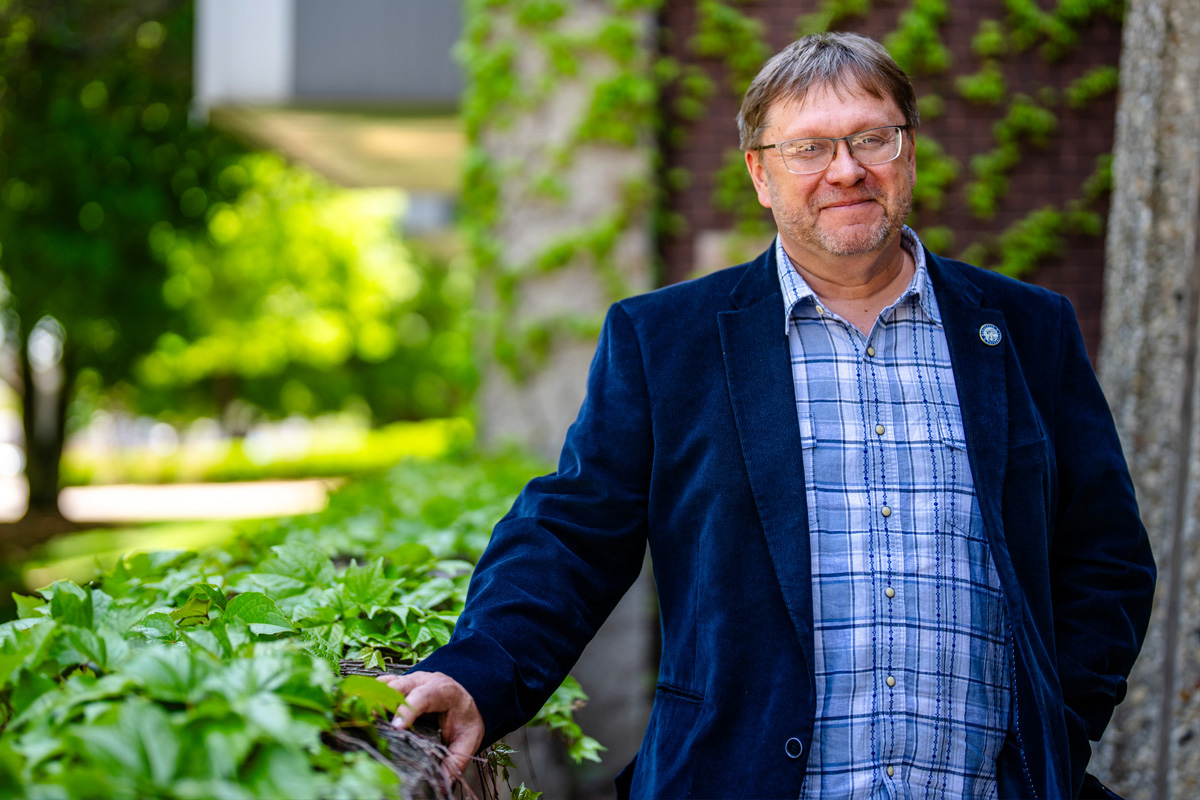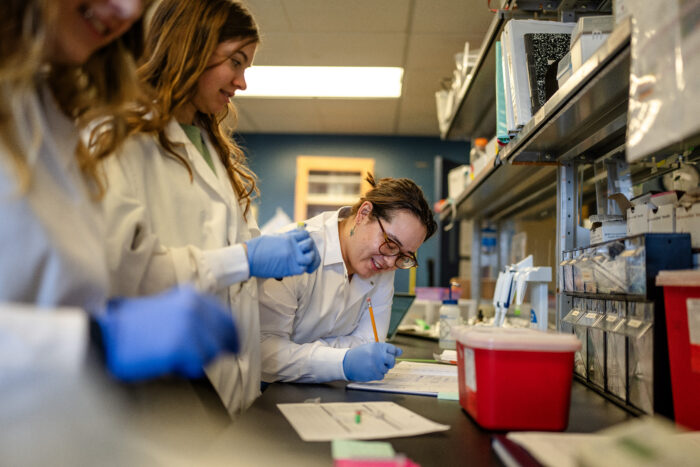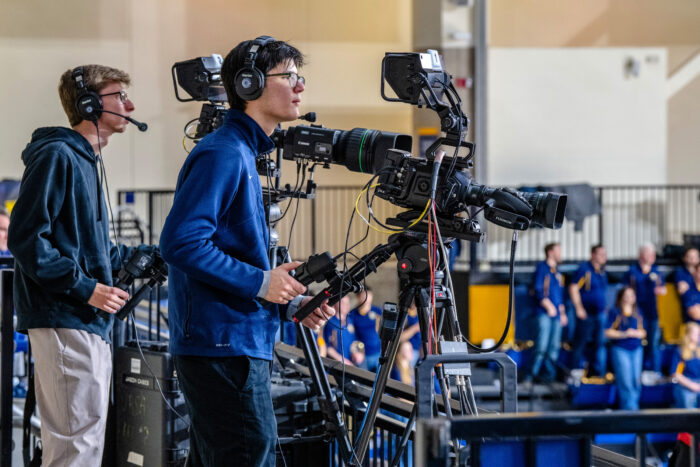Since quantum mechanics took the scientific world by storm at the turn of the 20th century, the quantum underpinnings of fundamental sciences such as chemistry have captured the imagination of generations of scientists, including Dr. Dmitri Babikov.
While so-called classical science can explain why apples fall from trees or why Earth orbits the sun, these rules break down at the subatomic level. Instead, this is the domain of quantum mechanics. On the quantum level, the formulaic certainties of classical science are instead replaced with probabilities.
Improved understanding of chemistry on the atomic level could unlock the development of valuable new drugs and materials. However, these quantum interactions are extremely complex and can only be revealed through computer simulations requiring massive processor loads. Not surprisingly, building these simulations reliably has proved to be a difficult problem, says Babikov, professor and Pfletschinger-Habermann Distinguished Chair of Chemistry. Even as classical computers have grown in computational power and speed, these machines remain ill-equipped to handle the complexity of quantum chemistry.
“Quantum computers are this kind of [exponentially powerful] device that comes out of a quantum world to help you utilize quantum laws to learn more about a quantum object. This is what’s really exciting.”
Dr. Dmitri Babakov
So, to solve this problem, Babikov has begun fighting fire with fire — that is, studying quantum phenomena using quantum tools.
Exponential power
“Molecular processes have this intrinsic scaling complexity — as I add one atom, the problem size grows not by one, but exponentially,” he says. “Quantum computers are this kind of [exponentially powerful] device that comes out of a quantum world to help you utilize quantum laws to learn more about a quantum object. This is what’s really exciting.”
These computers work by using quantum bits — called qubits — in place of classical computer processors. Like quantum mechanics at large, qubits work by taking advantage of probabilities and a related notion called “superposition.” Whereas a classical bit can only be in one position at a time — 0 or 1— a qubit can occupy both positions at any given moment.
Supported by a three-year, $800,000 grant from the National Science Foundation, Babikov and collaborators at Los Alamos National Laboratory are conducting research to investigate how quantum computing can be used to expand the study of quantum chemistry and molecular dynamics. For Babikov, this has been an academic obsession 20 years in the making.
Quantum computing
Whereas a classical computer builds its computational power linearly by adding more processors, a quantum computer can grow its power exponentially each time an additional qubit is added to the system, Babikov explains. This means that a quantum computer could easily outpace even the world’s most powerful supercomputers with only a few qubits of processing power.
Babikov and his team now have firsthand experience with these order-of-magnitude differences. They have used Marquette’s Raj high-performance computing cluster to run “very large classical-type calculations of molecular collisions and chemical reaction processes,” he says. But graduate students must spend years on these calculations, which demand millions of hours of cumulative processing time from the cluster’s computers. “This is exactly why we need quantum computers,” says Babikov.
Supported by a three-year, $800,000 grant from the National Science Foundation, Babikov and collaborators at Los Alamos National Laboratory are conducting research to investigate uses of quantum computing.
Although quantum computers are still in their infancy, Babikov and his team now work with existing quantum hardware to assess how it could advance quantum chemistry research. Through the Los Alamos National Laboratory, they have used a D-Wave Quantum Annealer machine, leading to research results published in the Scientific Reports of the journal “Nature.” They also use IBM-Q machines that are available for remote access by university and industry researchers.
An important part of this work includes determining how to translate quantum chemistry problems into a language — specifically algorithms — that quantum computers can understand, Babikov says.
“Quantum computers operate very differently from our traditional computers,” Babikov says. “In quantum computers, you need completely different algorithms to answer the same practical questions. … We develop algorithms that would be suitable for execution on quantum computers.”
Students studying quantum architecture
To complement research they help conduct at Marquette, students working with Babikov have the opportunity to continue studying quantum architecture through a summer internship at Los Alamos overseen by research scientist Dr. Brian Kendrick, the project’s co-principal investigator.
Back at Marquette, Babikov is also developing a new course, Introduction to Quantum Computing, and is working on plans for a future undergraduate concentration in quantum science to focus on quantum computing and simulation.
It is unlikely that computers will ever be able to answer all questions about how our universe is made, Babikov says, but in the next few years he’s excited to see just how much progress can be made using quantum architecture. “There will always be a demand for higher computing power and more predictive capabilities of computational chemistry,” he says. “The field of applications for quantum chemistry does not really have a horizon.”



